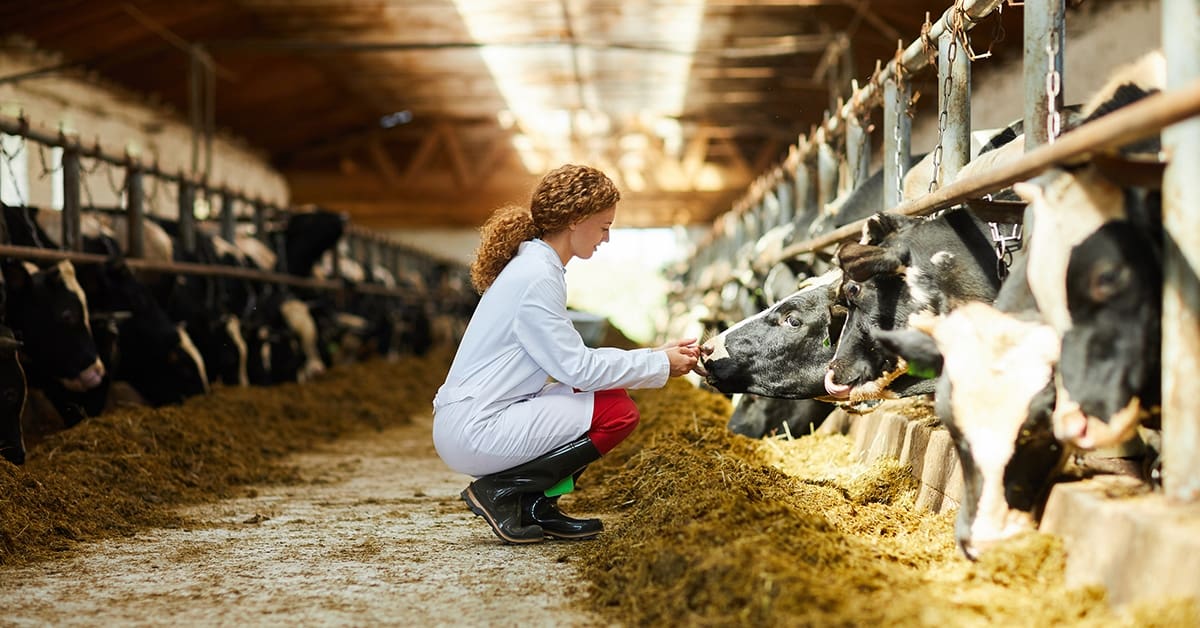
Veterinarians are most commonly known for taking care of the family dog and cat. The options for career paths are actually quite varied for future veterinarians and range from food animal care to medical research. If you understand the value of animals for those around you, being a veterinarian could be a good fit.
However, vet school costs a pretty penny. Most veterinarians walk out of grad school with six figures of student loan debt. You’ll want to know the veterinarian job outlook before you jump into this profession and take on the debt.
Veterinarian job outlook
The Bureau of Labor Statistics (BLS) projects the need for veterinarians will continue to rise by 18% from 2018 to 2028. This is much faster than average for job growth of all occupations.
The BLS data suggests that people are spending more on pet care, and this is contributing to the demand for veterinarians. The procedures that veterinarians can offer pets are also becoming more complicated. Procedures are “comparable to healthcare for humans,” according to the BLS, and can include things like a kidney transplant.
The American Veterinary Medical Association (AVMA) states that those looking to be a vet should have a scientific mind, good communication skills and leadership experience. These skills, combined with a love of animals, can lead to a successful career in veterinary medicine.
The veterinarian employment outlook is good, and it should be easy to find a position, especially with veterinarians providing services in a variety of ways. Career paths can include:
- Private or corporate clinical practice
- Teaching and research in academia
- Regulatory medicine, which includes inspecting animals for food safety and advocating for humane treatment
- Public health, which can include working for the Centers for Disease Control (CDC) or Environmental Protection Agency (EPA)
The majority of veterinarians work in private or corporate clinical practice taking care of livestock and pets.
All types of veterinarians are going to spend a significant amount of time in school. Vets are required to earn a Doctor of Veterinary Medicine (D.V.M.) degree from an accredited school. The time spent in school and the cost of veterinary tuition means there’s one major downside to becoming a vet — student loan debt.
Get Started With Our New IDR Calculator

Veterinarian job outlook: Are the student loans worth it?
You’re going to pay for vet school — there’s no question about that. The average debt for a veterinarian walking out of grad school is $143,757.82, according to the AVMA.
Vets aren’t alone in taking on heavy student loan burdens. Many doctors, lawyers and even dentists walk out of grad school with six figures of student loan debt. What really impacts being able to pay this debt off is the expected veterinary wages once employed.
Veterinarian salaries aren’t typically over six figures. The BLS reports the average veterinarian salary as of May 2018 was $93,830. The lowest salaries were below $56,540, and the highest were $162,450.
With numbers like these, you’re going to spend years making student loan payments. This will make things like saving for retirement or planning for kids difficult. AVMA said in its veterinarian economic report, “Going forward, student debt will noticeably affect the career satisfaction and well-being of veterinarians.” Student Loan Planner® has done numerous veterinarian student loan debt consults, and we can attest that the road will be tough.
Despite the insane amount of student loans that some vets take on, many persevere to follow their dreams. One of the ways you can make this happen is looking into student loan forgiveness.
4 student loan forgiveness options for veterinarians
You have four options when paying back your veterinarian student loans. As you investigate these choices, you should be aware that you’ll need to dig into whether you and the loans you take out qualify.
1. Public Service Loan Forgiveness (PSLF)
This is a great student loan forgiveness program that can wipe out all of your student loans. Before you get too excited, not many veterinarians actually qualify for PSLF. It’s only available to those who work for government or nonprofit organizations.
If you happen to work for the CDC or EPA, then you should definitely investigate this option. However, most vets are working for private or corporate practices, making them ineligible.
2. The Veterinarian Medicine Loan Repayment Program (VMLRP)
The VMLRP is housed by the U.S. Department of Agriculture. There are certain areas that experience veterinarian shortages. If you agree to work three years in one of these places, you can qualify for up to $25,000 of loan forgiveness each year.
That can be a good chunk of change, but the majority of jobs are in food supply or public practice in rural areas. You should understand that sacrifice before signing up.
3. Income-driven repayment forgiveness
If you have federal student loans, you can enroll in income-driven repayment (IDR) plan. There are four payment plans housed under IDR. You can use the Student Loan Planner® repayment calculator to see which plan would offer you the lowest payment. Under any of the four options, you can receive full student loan forgiveness after 20 to 25 years of payments.
4. Aggressive student loan debt payoff
The last option is the good, old-fashioned way of paying off student loans — straight from your own pocket. First, you shouldn’t go with this method if you owe more than 1.5 times your income. That’s when you aim for IDR loan forgiveness, as you want to actually meet some of your other life goals — such as buying a home or starting a family. And you shouldn’t sink all of your funds into your student loans if they’ll take more than 10 years to pay off.
If you end up going with aggressive student loan debt payoff, you’ll want to be strategic about it. You can refinance your student loans for a lower rate and make a repayment plan that runs for less than 10 years.
If you’ve decided to go to vet school and take on the student loans, be certain you have a debt payoff plan.
Unsure which path would be best? Student Loan Planner® is here to help. We specialize in helping those with six figures of student loan debt, even before you take it on. Reach out for a predebt consultation if you’re headed to grad school. We can look at your student loan repayment options and help you avoid drowning in debt after you graduate.


Don’t forget to also think about the physical and mental cost of being a veterinarian. Even if you’re not in private practice – it can be emotionally devastating: https://www.npr.org/2019/09/07/757822004/veterinarians-are-killing-themselves-an-online-group-is-there-to-listen-and-help
That’s very true. One vet told me it killed her everyday to have to put down perfectly healthy animals just because their owners were poor and couldn’t afford care.